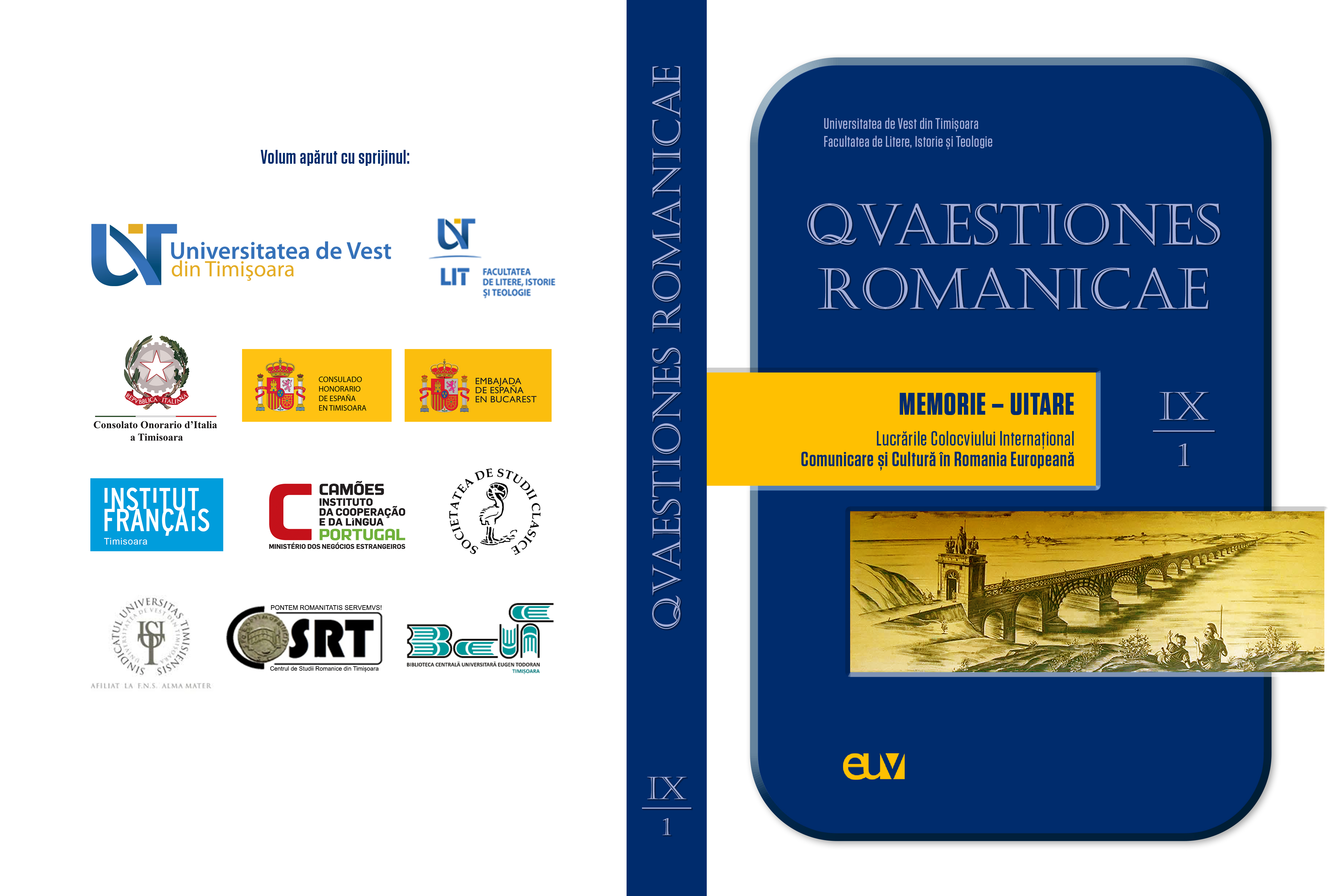Travaliul memoriei la Sfântul Augustin şi Mircea Cărtărescu
The Labour of Memory in Saint Augustine and Mircea Cărtărescu
Author(s): Ilona-Manuela DuțăSubject(s): Language and Literature Studies, Comparative Study of Literature, Romanian Literature, Hermeneutics, Ontology
Published by: Universitatea de Vest din Timişoara
Keywords: subjectivity; cleavage; simulacrum; Self; labour of memory;
Summary/Abstract: Writings strongly marked by the labour of memory (the appeal to memory being a genetic, internal principle of theirs), The Confessions of St. Augustine and the fictional autobiography Orbitor bring face to face two models of subjectivity at odds, the model of the birth of modern subjectivity and its postmodern decline. The mirroring of these models aims at mapping the interiority at the extremities of its history, in the point of origin and in the end, the Augustinian memory containing in germs the drama of modern subjectivity, while the Cărtărescian memory takes to the extreme this drama projecting itself in the field of postmodern relativism. Described under the sign of a radical cleavage (shattering, traumatic), the one between the abyss of human consciousness and the gaze of God (in Augustine), respectively the cleaved structure of the self projected as a double (in Mircea Cărtărescu), the interiors accessed by descending into the nebula of memory lead to opposite revelations, such as the Augustinian remembrance of God and the chimerical proliferation of the simulacrum. Metaphor central to both authors, the vast inner palaces of memory become the meeting place of the sacred in the conversion scenario, just as, at the other historical end of subjectivity, this place can only be the expression of nostalgia and emptiness. Conceived as an initiatory, ritualized path, the path to God or to the Self passes, for both authors, through the territory of memory, and its mapping is representative for the construction of specific models of interiority and identity. The double image of memory, at the end of antiquity and in postmodernism (therefore, at the end of modernity or neomodernity), is relevant for the path of Western subjectivity, of thinking about the subject’s relationship with the Self, activated through the process of recollection.
Journal: Quaestiones Romanicae
- Issue Year: IX/2021
- Issue No: 1
- Page Range: 86-99
- Page Count: 14
- Language: Romanian

